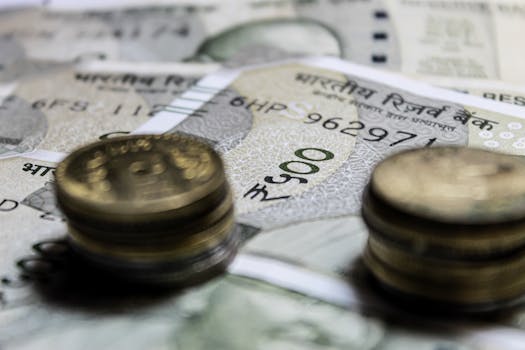
**
India has launched a strong call for significant reforms within the existing structure of multilateral development banks (MDBs) and a more equitable global credit rating system. Finance Minister Nirmala Sitharaman, in a recent address at the G20 Finance Ministers and Central Bank Governors meeting, underscored the need for these changes, arguing that the current systems are inadequate in addressing the developmental challenges faced by emerging economies like India. Her statements have ignited a global conversation about financial inclusion, equitable access to capital, and the reform of international financial institutions.
India's Plea for Multilateral Bank Reform: A Crucial Step Towards Global Equity
Sitharaman's appeal for MDB reform focuses on several key areas. She highlighted the limitations of the current capital adequacy frameworks, arguing that they are insufficient to meet the growing demands for infrastructure financing in developing nations. The existing system, she suggested, often struggles to provide adequate funding for crucial projects in areas like sustainable infrastructure, renewable energy, and climate change mitigation. This constraint hampers the progress of many developing economies striving for sustainable growth.
Key Demands for Multilateral Development Bank Reform:
- Increased Capital Adequacy: India advocates for a substantial increase in the capital base of MDBs to better address the financing needs of developing countries. This increase should be commensurate with the escalating global challenges and the growing demand for development financing.
- Enhanced Lending Capacity: The current lending mechanisms need streamlining to ensure quicker and more efficient disbursement of funds. Bureaucratic hurdles and complex approval processes often delay vital projects, hindering progress.
- Focus on Climate Finance: Given the urgent need to address climate change, India stressed the need for increased funding specifically dedicated to climate-related projects. This includes investments in renewable energy, climate adaptation measures, and disaster resilience.
- Modernized Governance Structures: Sitharaman called for a review and modernization of the governance structures of MDBs to ensure a more equitable representation of developing countries in decision-making processes. The current system is often criticized for favoring the interests of developed nations.
- Strengthened Risk Management: Robust risk management frameworks are crucial to ensure the efficient and effective utilization of resources. Improved risk assessment and mitigation strategies are needed to minimize potential losses and maximize development impact.
Challenging the Status Quo: India's Stance on Credit Rating Agencies
Beyond MDB reform, India also called for a more transparent and equitable global credit rating system. The Finance Minister expressed concerns about the potential biases inherent in the current system, arguing that it often undervalues the creditworthiness of emerging economies. This results in higher borrowing costs for these nations, hindering their economic growth and development.
Concerns Regarding Current Credit Rating Systems:
- Lack of Transparency: The methodologies employed by credit rating agencies often lack transparency, making it difficult for developing countries to understand the basis for their ratings.
- Potential for Bias: There are concerns that credit rating agencies may be influenced by political or economic considerations, leading to biased ratings that disadvantage emerging economies.
- Impact on Borrowing Costs: Unfavorable credit ratings can significantly increase borrowing costs for developing countries, limiting their access to much-needed capital.
- Need for Diversification: India advocated for a greater diversification in the credit rating landscape to reduce reliance on a few dominant agencies.
Sitharaman's speech underlines India's growing influence on the global stage and its commitment to promoting a more just and equitable international financial architecture. This initiative is not solely about India's own economic interests; it reflects a broader concern among developing nations about the limitations of the existing financial system.
The Global Impact of India's Reform Proposals
The implications of India's proposals are far-reaching. If implemented, these reforms could significantly reshape the global financial landscape, making it more inclusive and responsive to the needs of developing countries. This would have a positive impact on global development, fostering economic growth and reducing global inequality.
The call for reform resonates with many developing nations facing similar challenges in accessing capital and navigating the complexities of the global financial system. It could potentially lead to a stronger voice for developing countries within international financial institutions and a more equitable distribution of global resources.
The success of India's initiative will depend on the willingness of other nations, particularly developed countries, to engage in constructive dialogue and commit to meaningful reforms. The coming months and years will be crucial in determining the future of multilateral development banks and the global credit rating system. The international community's response to India's proposals will be a key indicator of its commitment to global equity and sustainable development.
Keywords:
India, Finance Minister, Nirmala Sitharaman, Multilateral Development Banks (MDBs), World Bank, IMF, Credit Rating Agencies, Moody's, S&P, Fitch, G20, Global Reform, Financial Inclusion, Equitable Access to Capital, Sustainable Development Goals (SDGs), Climate Finance, Infrastructure Financing, Emerging Economies, Developing Countries, Global Economic Governance, International Financial Architecture, Credit Rating System Reform, Capital Adequacy, Lending Capacity, Risk Management, Governance Reform, BRICS, Developing Nation Finance.


















